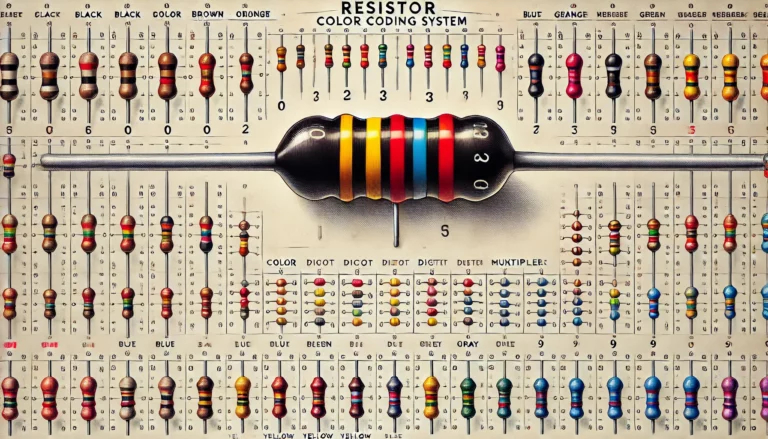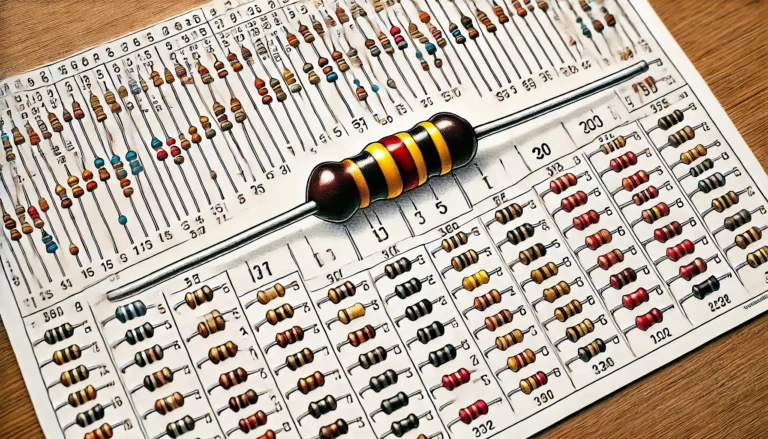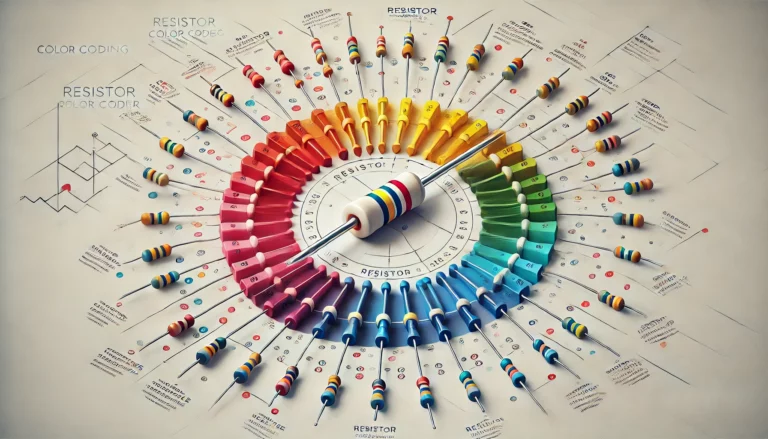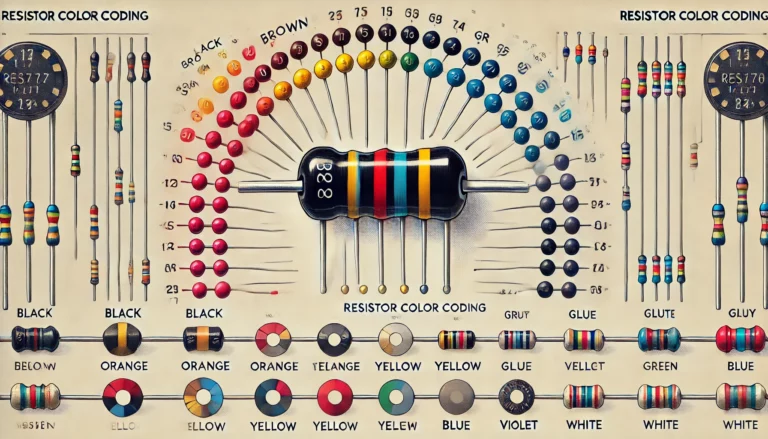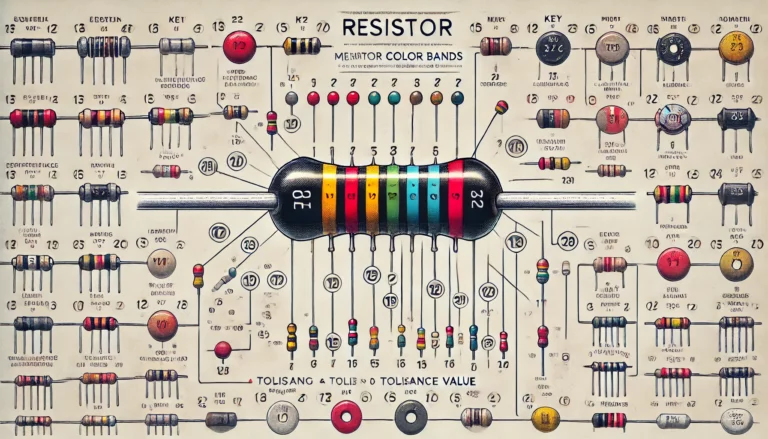Aluminum Busbar for Custom Applications
Table Of Contents
Aluminum Busbar for Custom Applications: Your Guide to Custom Aluminum Busbars and Solutions
Key Takeaways
- Comprehending Busbars and Their Functionality
- Benefits of Aluminum Busbars and Their Applications
- Tailored Aluminum Busbars for Specific Uses
- Designing Unique Busbars for Individual Needs
- Fabrication Techniques for Custom Busbars
- Premium Aluminum Busbar Choices Available
- Choosing Appropriate Material for Busbars
Understanding Busbars
Busbars are essential components in electrical systems designed to conduct electricity and distribute power efficiently. An aluminum busbar for custom applications offers numerous advantages, including lightweight characteristics and enhanced corrosion resistance. The versatility of bus bars allows for their use in various industries, accommodating specific needs and configurations. Aluminum can be an ideal choice due to its excellent conductivity and durability, making it a popular option for modern electrical installations. Understanding the different types of busbars, their applications, and how they can be tailored for unique requirements is crucial for optimizing performance in electrical networks.
Definition and Purpose of Busbars
Busbars serve as crucial conductive pathways that distribute electrical power throughout various systems. Typically made from aluminum alloys, these components are essential in power distribution applications, including bus ducts and busways. Their efficient design allows them to handle high currents while minimizing energy loss. In specialized scenarios, an aluminum busbar for custom applications can accommodate unique electrical demands, ensuring reliability in industries like rail transportation.
The purpose of busbars extends beyond simple conductivity; they provide structural support and safety for electrical systems. The formation of aluminum oxide on the surface enhances corrosion resistance, making aluminum busbars particularly suitable for harsh environments. Cast aluminum components can be integrated seamlessly into existing infrastructures, promoting ease of installation. This adaptability makes aluminum busbars a preferred choice for custom applications where tailored solutions are necessary for optimal performance.
Types of Busbars Available
Various types of busbars cater to different industry needs. Aluminum busbars are particularly popular for custom applications due to their lightweight characteristics and excellent conductivity. In the transportation sector, aluminum busbars are commonly used in automotive and aerospace applications, providing reliable power distribution without adding significant weight to vehicles. Mild steel busbars also serve as an option, especially in environments where strength is paramount, though they may be heavier than their aluminum counterparts.
Different industries utilize busbars according to their specific requirements. For instance, the milling industry might favor steel busbars for their structural integrity under heavy loads. Conversely, aerospace and automotive manufacturers often prioritize aluminum busbars for custom applications, seeking to optimize performance without compromising safety. Selecting the right type of busbar is crucial for ensuring operational efficiency across various sectors, making the choice of material and design a significant consideration.
Advantages of Aluminum Busbars
Aluminum busbars offer significant advantages in various applications, especially in custom manufacturing processes. Aluminum is increasingly popular as a material for busbars due to its lightweight characteristics and excellent conductivity. Custom aluminum busbars are particularly beneficial for meeting specific design requirements in electrical systems. Compared to other metals, aluminum busbars provide a cost-effective solution, allowing for flexibility in fabrication and assembly. The ability to tailor an aluminum busbar for custom applications ensures optimal performance and efficiency, making them an ideal choice for industries looking to enhance their electrical infrastructure.
- Aluminum busbars are lightweight, making them easier to handle and install.
- They provide excellent electrical conductivity, which improves efficiency in electrical systems.
- The cost-effectiveness of aluminum compared to other materials reduces overall project expenses.
- Customization options allow for design flexibility to meet specific project requirements.
- Aluminum’s resistance to corrosion extends the lifespan of busbars, reducing maintenance needs.
- These busbars can contribute to energy savings due to their efficiency in power transfer.
- Aluminum is abundant and environmentally friendly, supporting sustainable practices in manufacturing.
Lightweight Characteristics
Aluminum busbars stand out for their lightweight characteristics, making them an ideal choice for custom applications in various electrical systems. The lightweight aluminum busbar design facilitates easy handling and installation, which is particularly beneficial in environments where space is limited. Using custom aluminum bus bars not only reduces the overall weight of the assembly but also enhances the efficiency of the entire electrical system, ensuring that high-quality aluminum busbars can be deployed without excess burden on structural components.
These lightweight busbar solutions cater to the demands of modern industries, enabling the development of innovative and efficient electrical infrastructures. The use of lightweight aluminum busbars in custom applications allows engineers to optimize their designs, leading to improved performance and minimized material costs. By choosing an aluminum busbar for custom applications, users can achieve both a reduction in weight and an increase in reliability, which are crucial factors in today’s fast-paced technological environment.
Corrosion Resistance and Durability
Aluminum busbars are known for their exceptional corrosion resistance, making them ideal for various environments. This quality extends the lifespan of aluminum bus bars, especially in applications where moisture or chemicals may pose a threat. Utilizing an aluminum busbar for custom applications can significantly enhance performance while ensuring longevity. The superior aluminum busbar conductivity contributes to efficient energy transmission, lowering the risk of degradation due to corrosive elements over time.
Durability is another standout feature of aluminum busbars, providing a robust solution for demanding industrial settings. Custom busbars made from aluminum can withstand considerable mechanical stress without compromising their integrity. Industries benefit from aluminum busbar systems that not only resist corrosion but also offer reliable service over an extended period. This reliability is crucial in ensuring that custom busbars maintain optimal functionality in intricate electrical systems.
Aluminum Busbar for Custom Applications
Flexibility and adaptability are key attributes of aluminum busbars for custom applications. Tailored solutions meet specific custom busbar requirements across various industries, ensuring optimal performance in electrical systems. The custom busbar design must consider factors such as load capacity and space constraints, making meticulous busbar design considerations vital. High-quality custom busbars made from reliable busbar material, like aluminum, offer enhanced efficiency and durability. By integrating state-of-the-art technology with innovative designs, manufacturers can produce the top aluminum bus options to fit unique needs, ultimately leading to improved system reliability and effectiveness.
| Application Industry | Aluminum Busbar Type | Load Capacity (A) | Dimensions (mm) | Notes |
|---|---|---|---|---|
| Industrial Manufacturing | Flat Busbar | 2000 | 50 x 10 | For high current applications |
| Data Centers | Round Busbar | 1500 | 25 dia | Space-saving design |
| Renewable Energy | Hollow Busbar | 3000 | 80 x 40 | Efficient for solar applications |
| Transportation | Insulated Busbar | 1000 | 30 x 5 | Enhanced safety features |
Importance of Customization in Electrical Systems
Customization plays a vital role in the efficiency and effectiveness of electrical systems. The demand for aluminum busbar for custom applications has surged as industries seek well-engineered busbar design tailored to specific project requirements. Each custom busbar project requires careful consideration of various factors, including electrical loads, environmental conditions, and space constraints. Strategic busbar considerations ensure both performance and longevity in the system.
Opting for tailor-made aluminum buses allows for optimized safety and functionality. The busbar design process involves not only selecting the right busbar material but also ensuring that it meets the unique needs of the application. A custom busbar solution can significantly enhance operational efficiency and reduce potential risks associated with standard designs. Addressing these considerations ensures that electrical systems operate smoothly and effectively in their intended environments.
Applications of Aluminum Busbars in Various Industries
Aluminum busbars for custom applications play a vital role in a variety of industries, ranging from power generation to telecommunications. Their lightweight nature allows for easy installation and handling, making them an ideal choice for next busbar projects. Comparing aluminum busbars to traditional copper busbars reveals significant advantages in terms of weight and cost efficiency. The proper busbar design optimizes electrical conductivity while maintaining structural integrity, which is essential for large busbars used in industrial settings.
The versatility of aluminum busbars, particularly the AA1370 aluminium bus, makes them suitable for different applications. Selecting the right busbar size is crucial to ensure it meets specific electrical demands without compromising performance. Custom bus bars can be tailored to fit unique requirements across sectors like renewable energy and manufacturing. The ability to create busbars that fit precise dimensions and operational criteria ensures that industries can maximize efficiency and reliability in their electrical systems.
Custom Busbar Design
Creating a custom bus bar requires a thorough understanding of key busbar considerations to ensure optimal functionality within a busbar network. The choice between different materials, such as aluminum and copper, plays a crucial role in determining the performance, weight, and overall efficiency of the busbar solutions. An aluminum busbar for custom applications offers advantages like lightweight characteristics and excellent corrosion resistance. It is vital to evaluate how the specific aluminum bar or copper bus bar meets the power distribution needs and adheres to safety standards. Ultimately, the design process should focus on tailoring the busbar to enhance performance and reliability within the intended electrical system.
Factors to Consider in Custom Busbar Design
Customization is crucial for optimizing the performance of aluminum busbars in various electrical systems. Designers must consider the specific requirements of each installation, including the load capacity and environmental conditions. Selecting the right bus bar material is essential, as options like aluminum and copper bus bars come with distinct advantages. Properly sized bus bars can significantly enhance efficiency while minimizing energy losses. Thoughtful bus bar design ensures that bus bar joints maintain integrity under operational stresses.
The fabrication process of custom aluminum busbars plays a vital role in achieving desired specifications. Factors such as the thickness and cross-sectional area need to be tailored to meet the specific demands of the application. Designers should also consider the manufacturing techniques used to fabricate bus bars, as these can influence both performance and reliability. Ensuring that the chosen design accommodates future scalability is important for long-term functionality in custom applications.
| Design Factor | Description | Considerations |
|---|---|---|
| Material Selection | Choosing between aluminum and copper based on conductivity and cost. | Cost-effectiveness, weight, and conductivity requirements. |
| Load Capacity | Determining the maximum current the busbar can carry. | Safety margins, heat dissipation, and application type. |
| Environmental Conditions | Assessing conditions like humidity, temperature, and exposure to chemicals. | Corrosion resistance and thermal expansion considerations. |
| Fabrication Techniques | Methods like machining, welding, or extrusion that affect performance. | Precision, cost, and scalability for future needs. |
Benefits of Tailored Solutions
Tailored solutions in the design and fabrication of aluminum busbars maximize the performance of electrical systems. Unlike standard bus bars, customized options can be designed to accommodate specific load requirements and spatial constraints. Designing a thicker bus bar for higher current-carrying capacity ensures optimal function, while high-quality bus bars made from aluminum offer superior conductivity and thermal performance. This makes aluminum busbar for custom applications an ideal choice for industries that demand precise electrical solutions.
Customization allows for the integration of features that standard bus bars may lack, such as unique mounting configurations and specialized insulating materials. The use of a customized RHI busbar enhances efficiency and safety in energy distribution. Each application can demand different specifications, making it clear that an aluminum busbar for custom applications provides tailored solutions that meet diverse operational needs. Investing in customized busbars ultimately leads to improved reliability and longevity within various electrical systems.
Custom Busbar Fabrication Process
The process of bus bar fabrication involves several meticulous steps to ensure the production of high-quality aluminum busbars for custom applications. Effective strategies are employed to create a strategic bus bar that meets specific electrical demands. Each element, from the selection of aluminum connectors to the integration of potential equalization busbars, plays a critical role in the overall functionality. Information gathered during the design phase guides the manufacturing of the correct bus bar, including the choice of bus bar connectors that guarantee reliable performance. Ultimately, a well-executed fabrication process results in an aluminum busbar tailored to the unique needs of various electrical systems.
Materials Used in Custom Busbar Fabrication
The choice of materials for custom busbar fabrication plays a significant role in the performance and reliability of electrical systems. High strength aluminum is a popular choice due to its lightweight characteristics and excellent conductivity. For critical bus bar applications, using quality aluminum is essential to ensure optimal performance. Reliable bus bar fasteners are also crucial in maintaining the structural integrity of aluminum rails, which contribute to the overall effectiveness of the design.
Aluminum materials sourced from reputable suppliers like aluminum.org guarantee durability and resistance to corrosion. Customizing aluminum busbars for specific applications allows engineers to tailor their designs to meet unique operational needs. This flexibility ensures that the busbar can withstand environmental challenges while maintaining efficiency, making it ideal for various industrial sectors.
Steps Involved in Fabricating Aluminum Busbars
The fabrication of aluminum busbars for custom applications begins with precise design assessments to meet specific requirements. This process involves collaboration with American-based aluminum suppliers, such as PCP Aluminium, to source high-quality aluminum that conducts electricity efficiently. The selected aluminum is then cut and shaped into the desired dimensions, ensuring compatibility with various bus systems. This careful planning is essential for achieving a long-lasting bus bar that performs optimally in both indoor and outdoor applications.
After fabrication, treatment processes are applied to enhance the durability of the aluminum busbars. Since aluminum corrodes over time, protective coatings or anodizing treatments are often utilized to extend the lifespan of the busbars. These measures are crucial for maintaining performance, especially in challenging environments. Incorporating these steps ensures that the custom aluminum busbar meets the specific electrical needs while providing reliable service throughout its operational life.
HighQuality Aluminum Bus Options
High-quality aluminum bus options play a crucial role in the efficiency and reliability of electrical systems. The use of pure aluminum ensures optimal conductivity, making it a preferred choice for applications requiring superior performance. Aluminum fabrication delivers precision-designed components like bus plates and busway systems, enhancing the overall functionality of electrical setups. Quality cast aluminum used in these products guarantees durability and longevity, critical for any installation. Choosing the right aluminum busbar for custom applications allows for tailored solutions that meet specific industry demands, ensuring maximum effectiveness in operations.
Evaluating Aluminum Bus Bar Capacity
Understanding the capacity of aluminum busbars is crucial for ensuring optimal performance in various applications. Aluminum busbar for custom applications benefits from their lightweight characteristics, making them suitable for flexible applications where traditional materials may not suffice. The inherent bus plate characteristics of aluminum contribute to efficient current distribution, allowing for the design of bus solutions that meet specific electrical demands without adding excessive weight.
Evaluating the capacity also involves assessing the impact of closed aluminum oxide, which enhances the durability and electrical performance of the busbar. This protective layer allows the aluminum busbar for custom applications to maintain performance in challenging environments. By focusing on these key elements, engineers can select the appropriate aluminum busbars for lightweight applications, ensuring that systems operate efficiently and effectively.
- Determine the required current load for the specific application.
- Assess the dimensions and cross-sectional area of the aluminum busbar.
- Consider the ambient temperature and its impact on conductivity.
- Evaluate the length of the busbar and potential voltage drop.
- Examine the installation environment for factors like humidity and corrosion.
- Review industry standards and guidelines for busbar capacity ratings.
- Conduct thermal analysis to ensure safe operating temperatures are maintained.
Ensuring the Right Aluminum Bus for Your Needs
Selecting the right aluminum bus for your needs involves considering the specific requirements of various applications. An aluminum busbar for custom applications can be tailored to handle high-current applications efficiently. The choice of material, such as cast aluminum ingots, plays a crucial role in the busbar’s performance under demanding applications. Understanding the load capacity and thermal characteristics is essential for ensuring that the buses can perform optimally over time.
Different industries utilize aluminum busbars for many applications, and knowing the precise requirements helps in making an informed decision. Whether for power generation, distribution, or specialized processes, the right aluminum busbar for custom applications must align with the operational demands. Evaluating the properties of the metall used in manufacturing can significantly affect the efficiency and reliability of the busbar in various applications.
Selecting the Right Busbar Material
Choosing the appropriate material for busbars is crucial for optimizing performance in various electrical systems. Aluminum busbars are often favored for custom applications due to their excellent conductivity and lightweight characteristics, making them ideal for weight-relevant applications. The design of these bars can be tailored to meet specific requirements, ensuring compatibility with automation equipment. High-purity aluminum enhances conductivity, enabling efficient power distribution along rail systems and other critical infrastructure. By considering the right material, engineers can create busbar designs that not only meet performance expectations but also contribute to the longevity and reliability of the equipment involved.
Comparison of Aluminum Busbars to Other Materials
Aluminum busbars for custom applications present distinct advantages over other materials used in industrial settings. Their lightweight nature makes them ideal for specific applications that require ease of handling and installation. Bar manufacturers often prefer aluminum for large-scale applications, where the busbars must reliably connect multiple panels and distribute electrical loads efficiently. The suitability of aluminum for varying application environments enhances its appeal, especially in material-intensive applications.
Comparing aluminum busbars with alternatives like copper or steel reveals notable differences in performance and cost-effectiveness. While copper offers superior conductivity, aluminum provides a better weight-to-strength ratio, making it valuable for industrial applications where reducing overall system weight matters. In scenarios demanding customized solutions, aluminum busbars for custom applications can be tailored to meet specific operational requirements, ensuring optimal performance without compromising durability.
Analyzing Performance and Efficiency of Busbar Materials
Performance and efficiency are critical factors in choosing the right busbar material for various applications. Aluminum busbars for custom applications offer excellent conductivity and thermal performance, making them suitable for use in batteries and other electrical systems. Their lightweight nature enables easier handling and installation, while ensuring optimal current distribution throughout the system.
Analyzing the performance of different materials also highlights the advantages of aluminum busbars over traditional medium. The efficiency of an aluminum busbar is crucial when it comes to energy transmission and minimizing losses due to resistance. This effectiveness makes them a preferred choice in diverse applications, contributing to the reliability and longevity of electrical infrastructures.
Conclusion
Aluminum busbars for custom applications play a vital role across various industries, particularly in rail transportation where efficiency is crucial. The use of aluminum alloys offers substantial weight savings compared to traditional materials like copper, making them ideal for applications requiring robust structural integrity within limited space. The presence of aluminum oxide provides added protection against corrosion, enhancing the longevity of the bus ducts and busways used in electrical systems. Cast aluminum components contribute to the versatility needed for specialized designs, ensuring that the bus systems can be tailored precisely to meet the demands of different environments. Ultimately, choosing the right aluminum busbar for custom applications ensures reliable performance and efficiency in energy distribution systems.
FAQS
How do capacity aluminum busbars compare in quality and functionality to other aluminum bus bars for custom applications?
Capacity aluminum busbars are designed specifically for high-quality aluminum bus applications, providing excellent conductivity due to the use of pure aluminum. They are lightweight busbar-solutions aluminum alternatives that offer efficient performance in various custom busbar projects. When looking for custom busbar solutions, it is essential to consider the quality cast aluminium used, as it directly affects the performance in weight relevant applications such as in electrical aluminum busbars and battery systems. Information on bus plate products and aluminum conducts can help guide the selection process for optimal results.
What are the benefits of using high-quality aluminum bus in custom applications compared to standard options?
High-quality aluminum bus provides several advantages for custom applications, including improved conductivity, which is essential for optimal performance. The use of aluminium bus bar in specific designs ensures that aluminium bus bars deliver superior reliability and efficiency. Additionally, aluminum offers enhanced flexibility in design, and when combined with information on busbar manufacturing techniques, can result in products crafted from lightweight metal and cast aluminium ingots, ensuring longevity and superior pure aluminum conductivity.
What information should I consider when choosing aluminum busbar manufacturing for custom applications?
When selecting aluminum busbar manufacturing for custom applications, it’s important to gather comprehensive information about the specific requirements of your project, including dimensions, current rating, and environmental factors. Understanding the manufacturing processes and materials used will ensure that the selected busbars meet the necessary performance and safety standards for your application.
What information is essential to understand when exploring aluminum busbar manufacturing processes for specific custom applications?
When exploring aluminum busbar manufacturing processes for specific custom applications, it’s essential to gather information regarding the materials used, production techniques, and the overall quality control measures employed during the manufacturing process. Additionally, it’s important to consider how these factors affect the performance and durability of the busbars in the intended applications.
What are the recent advancements in aluminum busbar manufacturing that improve their functionality for custom applications?
Recent advancements in aluminum busbar manufacturing include innovations in material quality and production techniques, which enhance the overall performance and durability of the busbars. This improved busbar manufacturing process allows for better customization options, ensuring that they meet the specific needs of various applications while maintaining high standards of safety and efficiency.
What information should I have regarding busbar manufacturing when considering aluminum options for custom applications?
When exploring aluminum busbar manufacturing for custom applications, it’s essential to gather information on the materials used, the manufacturing processes involved, and the specific requirements for your application. This information helps ensure that the busbar meets performance standards and is tailored to your unique needs.
What important information should I gather about aluminum busbar manufacturing for specialized custom applications?
When exploring aluminum busbar manufacturing for specialized custom applications, it’s essential to gather detailed information on the materials used, the production processes, quality standards, and any specific requirements that may affect performance and reliability. Understanding these factors will help ensure that the aluminum busbars meet the necessary specifications and functionality for your custom applications.
What key information should I have regarding the aluminum busbar manufacturing process for my specific custom applications?
Gather comprehensive information about busbar manufacturing, including the materials used, design specifications, and compliance with industry standards, to ensure that the aluminum busbar meets the requirements of your specific custom applications.
What information is crucial for effectively assessing aluminum busbar manufacturing for various custom applications?
When evaluating aluminum busbar manufacturing for different custom applications, it is essential to gather information regarding the materials used, the manufacturing processes involved, and the specific requirements for each application. This information helps ensure that the aluminum busbars meet the necessary standards and performance criteria for optimal functionality.
What general information should I look for regarding busbar manufacturing when evaluating options for custom applications?
When evaluating options for custom applications, it’s crucial to gather information about busbar manufacturing, including materials used, design specifications, and production techniques that enhance performance and reliability.


